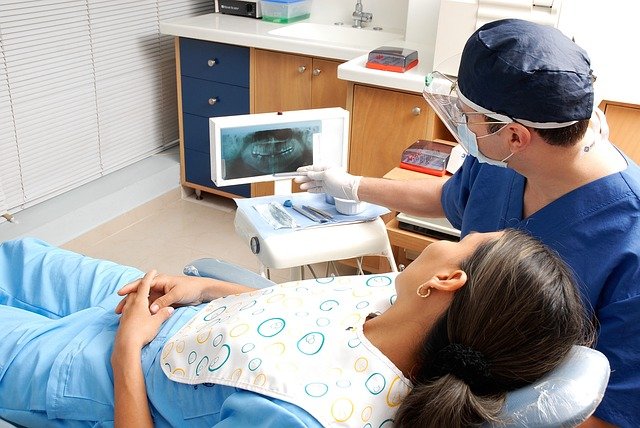Dental Implant Costs in the UK for 2026
Dental implants are a common tooth replacement option in the United Kingdom, offering a longer-term alternative to dentures or bridges. This article outlines factors influencing dental implant pricing in 2026 and provides an overview of typical costs, helping individuals better understand what to expect.

What Are Dental Implants?
Dental implants are artificial structures surgically inserted into the jawbone to support dental prosthetics such as crowns, bridges, or dentures. Commonly fabricated from biocompatible materials like titanium, implants act as replacements for natural tooth roots. They integrate with the bone through a process called osseointegration, which can enhance stability and functionality compared to removable options.
Implants are used to restore one or more missing teeth and can improve chewing ability, speech clarity, and overall oral health by maintaining bone density. Unlike traditional dentures that may move or require adhesives, implants offer a fixed solution that mimics natural teeth in form and function. Their use has increased steadily in the UK, partly due to advancements in dental technology and increasing patient awareness.
Factors Influencing the Cost of Dental Implants in 2026
Several factors affect the overall cost of dental implant treatment in the UK:
Number of Implants Needed
The cost will vary depending on whether a single implant, multiple implants, or a full arch replacement is required. Each implant involves additional materials, surgical time, and prosthetic components.
Type of Prosthetic Replacement
Costs differ depending on whether the implant supports a single crown, a bridge replacing multiple teeth, or a full overdenture. More complex prosthetics generally increase the total price.
Surgical Complexity
Additional procedures such as bone grafting or sinus lifts may be necessary if the jawbone does not have adequate volume or density. These procedures extend treatment and add to costs.
Location and Expertise
Prices can differ by region within the UK and depend on whether the treatment is carried out by general dentists, specialists such as oral surgeons or periodontists, or at private clinics versus NHS settings.
Diagnostic and Planning Procedures
Initial consultations typically include assessments, imaging such as 3D scans or X-rays, and treatment planning, all of which contribute to the overall expense.
Materials and Technology Used
The brand and quality of implants, manufacturing technology, and the choice of crowns or bridges impact pricing.
Follow-up and Maintenance
Implant treatment usually requires multiple appointments, including surgery, fitting, and subsequent check-ups, which can affect total costs.
Dental Implant Procedure Overview
The process usually involves several stages over weeks or months. Initially, a consultation and assessment determine suitability and plan treatment. The implant is then surgically placed into the jawbone. Healing follows, during which osseointegration occurs, typically taking 3 to 6 months. Afterward, the abutment is connected to the implant, and the prosthetic tooth or teeth are fitted.
Each stage requires professional appointments and sometimes additional interventions, influencing the total cost and duration.
Access to Dental Implants in the UK
Dental implants generally are not available through the National Health Service (NHS) except in rare cases where there is a significant medical need. Most implant treatments in the UK occur in private dental practices, although some university dental hospitals might offer treatment at reduced fees through student clinics.
The private nature of this treatment means costs may vary considerably, and patients often need to consult multiple providers for pricing tailored to individual cases.
Typical Costs in United Kingdom (2026)
When considering dental implant treatment in the United Kingdom, typical price ranges include:
- Basic option: Around £1,800 to £2,200 per implant for a single tooth, covering the implant fixture, abutment, and crown.
- Standard option: Approximately £3,000 to £5,000 for multiple implants or implant-supported bridges, including added procedures such as bone grafting.
- Premium option: Typically £5,000 to £10,000 or more for complex cases involving full arch replacements with advanced prosthetics or implant-supported dentures.
These estimates depend heavily on individual circumstances, treatment complexity, and provider fees.
Alternatives to Dental Implants
For those considering tooth replacement but for whom implants are unsuitable or unaffordable, alternative options include:
- Conventional dentures: Removable prosthetics that can replace a full arch or several teeth.
- Fixed bridges: Dental bridges anchored to adjacent natural teeth.
- Mini implants: Smaller diameter implants sometimes used to stabilise dentures, often at lower costs but with different clinical indications.
Each alternative has advantages and limitations concerning comfort, aesthetics, function, and maintenance.
Maintaining Dental Implants
Once placed, dental implants require regular hygiene and dental check-ups to ensure long-term success. Good oral care practices and professional examinations help prevent complications such as peri-implantitis (inflammation of the tissue around the implant).
Summary
Dental implant treatment in the UK involves multiple factors influencing cost and suitability. While the procedure offers a durable solution to tooth loss, it typically requires a significant financial investment and time commitment. Understanding the components of the treatment, typical costs in 2026, and alternative options can assist individuals in making informed decisions aligned with their needs and circumstances.




